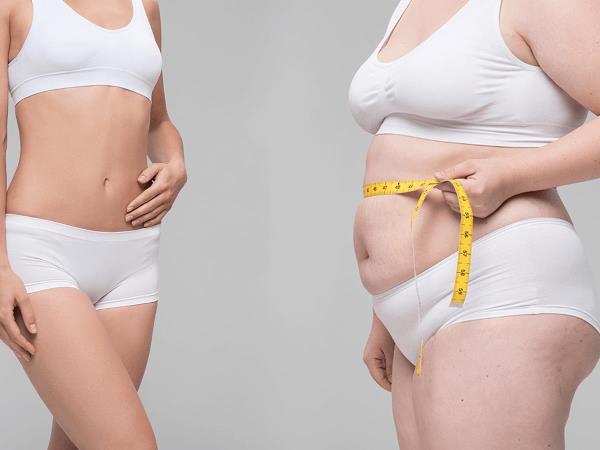Calories: Basic Energy of the Body
Calories are the unit of energy that the body gets from food. If you consume more than you burn, the excess is stored as fat. If you consume less, the body begins burning its reserves. This is the foundation we all know.
But interestingly, not all calories are equal. A study by the American National Institute of Health (2020) showed that 200 calories from chocolate affect the body differently than 200 calories from an apple. With sweets, blood sugar spikes quickly and then drops rapidly, leading to hunger. With an apple, fibers and vitamins ensure that energy is released slower and more evenly.
Simply put, the quality of calories matters as much as their quantity.
How to Calculate How Many Calories You Need?
Every person has their basal metabolism (the amount of calories the body uses at rest just to keep the heart, lungs, and brain functioning). This number increases with weight and height, but decreases with age.
An average 40-year-old man, standing 180 cm tall and weighing 80 kg, burns about 1800 calories at rest per day. If physically active, this number can go up to 2500 or more. Women have slightly lower requirements. An average 35-year-old woman, standing 165 cm tall and weighing 65 kg, needs around 1500 resting calories.
A study from the UK (2021) revealed that people often underestimate their calorie intake by as much as 25%, believing they consume 1600 calories when, in reality, it's 2000. This is a major reason why weight loss stalls.
Hormones: The Hidden Rulers of Hunger and Satiety
While calories determine the basic equation, hormones dictate how you feel and how much you eat.
- Insulin is a hormone that helps the body utilize sugar from food. If it's consistently high (due to sugary drinks and fast food), the body stores more fat. Prolonged high insulin leads to insulin resistance – a condition where the body no longer responds normally to insulin. This is often the first step towards type 2 diabetes.
- Leptin is the satiety hormone – it signals the brain when you've had enough food. The problem is, overweight individuals often develop leptin resistance, meaning they still feel hungry despite having consumed enough food.
- Ghrelin is the opposite of leptin – the hunger hormone. Its levels increase when you don't get enough sleep or are under stress. This explains why we crave cookies and coffee after a sleepless night.
A study at the University of Chicago (2022) showed that just 2 hours less sleep per night raises ghrelin levels by 14% and decreases leptin levels by 16%. This results in increased hunger and a higher risk of overeating.
Habits: Small Steps, Big Changes
The principle of "less is more" always applies in traditional medicine. The same goes for weight loss.
Regular physical activity doesn't mean you have to run a marathon. Just 30 minutes of walking per day reduces the risk of obesity by 30% (WHO, 2023). If you drive to work, consider parking 10 minutes further away. Opt for stairs over the elevator, and you'll burn an extra 10,000 calories a year, almost one and a half kilograms of body weight without even realizing it.
Fiber-rich foods like beans, oats, apples make you feel fuller for longer. A study by the University of Madrid (2020) showed that people who consumed at least 30 grams of fiber per day lost an average of 2 kilograms more in six months than those who did not.
Sleep and Stress Often Overlooked Factors
Lack of sleep and chronic stress have become major enemies of healthy weight in recent years. Cortisol, the stress hormone, promotes fat accumulation around the abdomen. Data from Canada (2021) confirmed that people with chronic stress gained an average of 5 kilograms more in two years than those without stress, even though they ate similar amounts of food.
Solutions? They don't require expensive therapies. Just a few minutes of deep breathing per day or a short meditation have been proven to reduce cortisol levels. The folk wisdom that a calm mind is half of good health is now understood to have a hormonal explanation too.
Why Do Goals Often Fail?
One of the biggest mistakes in weight loss is setting unrealistic goals. If you say you'll lose 10 kilograms in one month, you'll almost certainly give up. The body needs time.
The SMART method (specific, measurable, achievable, relevant, and time-bound goals) is also used in weight loss. For example: In two months, I will lose 4 kilograms by walking 30 minutes every day and cutting down on sugary drinks. This is a realistic goal.
A study from the University of Sydney (2025) revealed that people who set smaller goals were 70% more likely to achieve long-term results compared to those who wanted everything at once.
Support from the Environment, the Hidden Engine of Success
If you're trying to lose weight alone, the journey is harder. Support from family, friends, or online communities can make a difference. During the 2020 pandemic, many turned to online weight-loss communities. Research from that period showed that people who connected with others through apps lost an average of 3 kilograms more than those who tried on their own.
Before and after photos can also be a strong motivator. Not for comparison with others, but to see your own progress.
Weight Loss Is Not Just a Number on the Scale
Weight loss is a combination of calories, hormones, and habits. Although it sounds complex, the message is simple: it's not just about eating less, but making smarter choices and adopting healthier habits. You need a good balance – enough sleep, less stress, regular exercise, and food that truly nourishes the body, not just fills the stomach.
There's no one-size-fits-all solution, but research and folk wisdom agree on one thing: small steps that everyone can take lead to the greatest changes. Every walk instead of the elevator, every apple instead of a donut, and every extra hour of sleep is an investment in your health.
And the next time you hear that weight loss is just about calories, remember, the truth is far more interesting. Your body is not a calculator, but a living whole where food, hormones, and habits intertwine. Understanding this puts you on the best path to lose weight permanently and healthily.









 Would you like to be informed about news on the website?
Would you like to be informed about news on the website?

